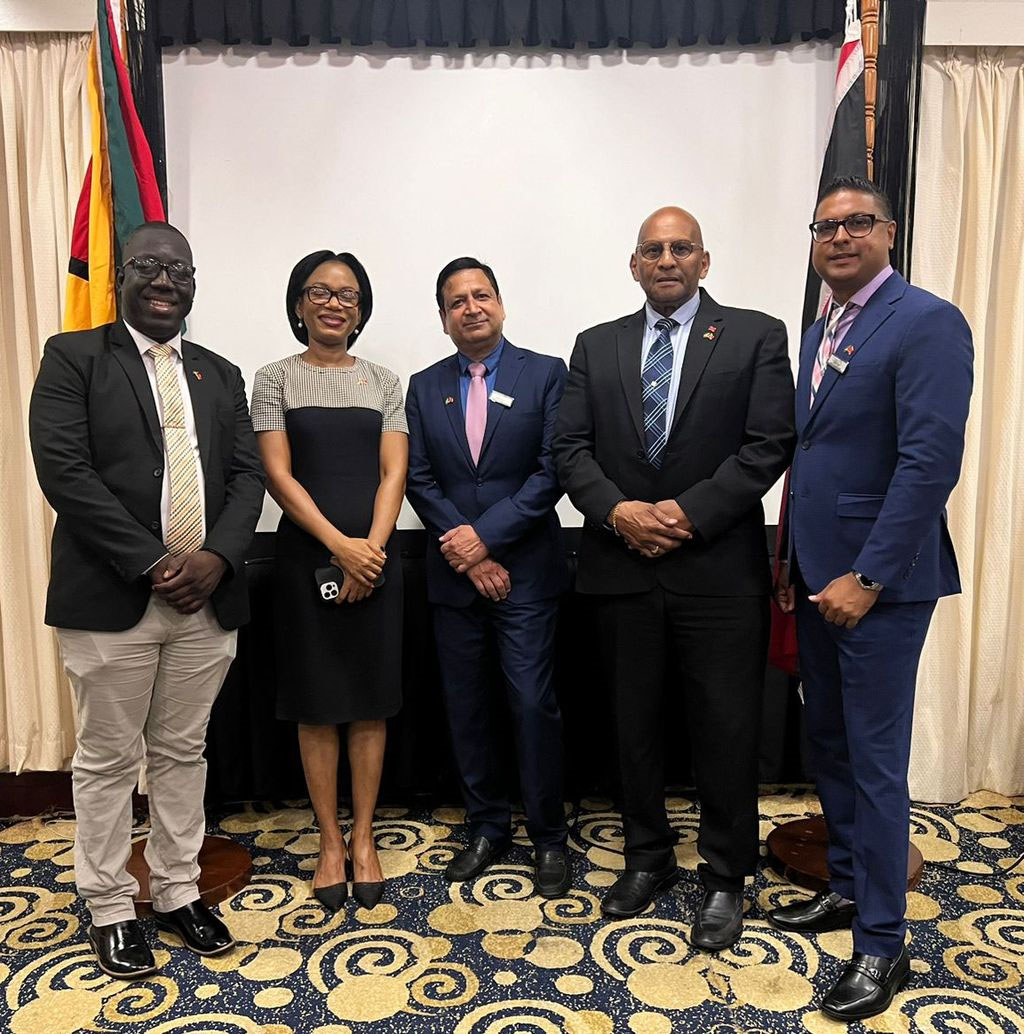With Guyana and Trinidad and Tobago sharing the similarity of both being the two most prominent oil-producing countries within the Caribbean Community (CARICOM) whilst simultaneously possessing two of the region’s most successful agricultural sectors, there is, potentially, ample room for the two countries to foster linkages that can redound, not just to themselves, but also to the Caribbean as a whole. It is a potential partnership that can hardly be taken for granted in a time when the region, as a whole, is confronted with a food security challenge, reportedly of unprecedented proportions.
Contextually, President of the Chaguaramas Chamber of Commerce and Industry (CCIC), Baldath Maraj, envisages partnerships growing to the point where these can become a standout dimension to income-generating links between the two countries. Maraj pinpointed the prospects for the opening of wider areas of cooperation between the two Caribbean Community (CARICOM) countries during a presentation to local businessmen at the Herdmanston Lodge on Tuesday March, 19, the opening day of a four-day ‘trade mission’ to Guyana by representatives of the Chaguaramas Chamber.
The visit here by the delegation of business officials from the twin-island Republic was undertaken against the backdrop of the changing shape of business relations between Guyana and the rest of the region, driven by the wider prospects for intra-regional collaboration in entrepreneurial pursuits that inhere in Guyana’s new-found status as a ‘petro power’ and arguably the most attractive regional prospect for collaboration in other fields of business endeavour.
In his presentation to an audience that included Guyana’s Minister of Tourism, Industry and Commerce, Oneidge Walrond and Trinidad and Tobago’s High Commissioner to Guyana, Conrad Enill, Maraj emphasized what he sees as the strategic advantages to be derived from partnerships between the two countries in the business realm, pointedly underscoring agro processing as a sector in which the two countries are likely to do well together.
Trinidad and Tobago continues to afford its agro processing sector aggressive publicity both at home and in other parts of the region. In its publicity, it also underscores the success that the sector has realized in winning market acceptance in countries both within and outside the region. Guyana, its own agro processing prowess hardly in question, has, nonetheless, been unable, up to this time, to match its CARICOM partner’s accomplishments in that field.
It is against this backdrop that the Trinidad and Tobago business executive told his Guyanese audience that his country is seeking to foster more robust linkages in the agro processing sector. Maraj also envisages the strengthening of linkages between the two CARICOM countries in the broader agricultural sector pointing to the synergies that can derive from Trinidad and Tobago’s “wealth of experience and expertise” on the one hand and Guyana’s abundant agricultural resources on the other. Contextually, he asserted that by working together, “we can create new avenues for trade, generate employment, and contribute to food security and economic resilience in both countries.”
The Trinidadian business executive also sees potential for collaboration in areas that include technology and innovation, asserting that the twin island Republic’s “vibrant tech start-up ecosystem” can create partnerships with Guyanese agro processors seeking to grow entrepreneurial pursuits. These outcomes, Maraj is quoted as saying, can create “knowledge exchange, mentorship programmes and investment opportunities… we can catalyse the growth of the tech sector in Guyana and position both our countries as hubs of innovation in the region,” he added.
Further, the CCIC executive told the Guyanese audience that his organization was seeking to probe specific areas of mutual benefit, particularly in the area of the development of small and medium-sized enterprises that have the capacity to drive growth and prosperity for the two countries. “Our focus on SMEs is deliberate and strategic. These enterprises form the backbone of our economies, driving innovation, creating jobs and fostering inclusive growth,” the Trinidad Guardian quotes the business executive as saying.








